Search
Did you mean: Antioch?
Summary 
Loading AI-generated summary based on World History Encyclopedia articles ...
Search Results
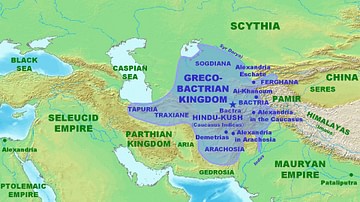
Definition
Greco-Bactrian Kingdom
The Greco-Bactrian kingdom refers to several dynasties and probably kingdoms of Greco-Macedonian monarchs who ruled over Bactria from 250 to 130 BCE. Foundation The Greco-Bactrian kingdom appeared in 250 BCE, when the satrap Diodotos...
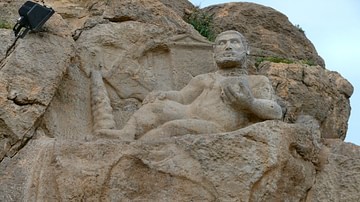
Definition
Persis
Persis (in Greek, derivated from Persian pars) is the ancient name of the approximate area of modern Fars in Central Iran, as well as a state of the Hellenistic and Imperial periods in this same province. Its name is derived from the Persians...
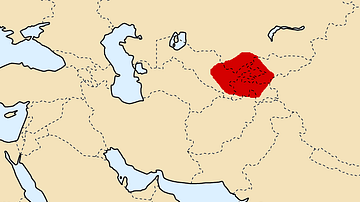
Definition
Sogdiana
Sogdiana (or Sogdia) is a region in Central Asia between the mighty rivers Iaxartes in the north and Oxus in the south. Its eastern and western limits are more difficult to determine, especially since the toponym Sogdiana covered different...
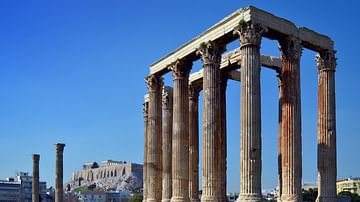
Article
Temple of Olympian Zeus, Athens
The Temple of Olympian Zeus in Athens, also known as the Olympieion, was built over several centuries starting in 174 BCE and only finally completed by Roman emperor Hadrian in 131 CE. Its unusually tall columns and ambitious layout made...
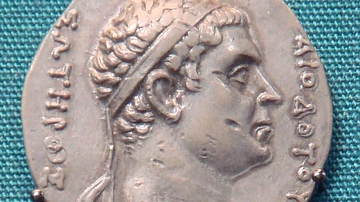
Definition
Diotid Dynasty
The Diodotids were a Greco-Bactrian dynasty of kings, composed of the two rulers Diodotos I and his son Diodotos II. The dynasty lasted between c. 250 BCE and c. 230 BCE, which was very short but significant because Diodotos I was the first...
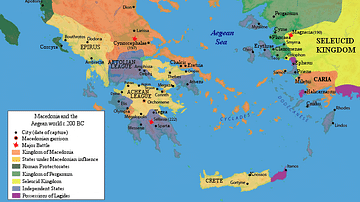
Definition
Achaean League
The Achaean League (or Achaian Confederacy) was a federation of Greek city-states in the north and central parts of the Peloponnese in the 3rd and 2nd centuries BCE. With a combined political representation and land army, the successful early...
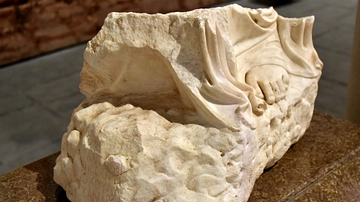
Image
Greek Artist's Signature
The sculptor's signature, written in Greek, can be seen on the base (left) of this marble statue. The text reads "Antoninus Alexandreus, son of Antiochos, made this by himself". The statue may be of Apollo or a muse. The name Antoninus Alexandreus...

Article
Greco-Bactrian and Indo-Greek Kingdoms in Ancient Texts
The rarity of the appearance of Greco-Bactrian and Indo-Greek kingdoms in ancient literature is one of the reasons why those states are so little-known today. Indo-Greek literature did exist, but none has been found that speaks about the...
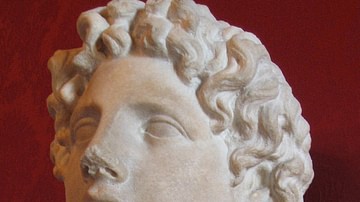
Definition
Alcibiades
Alcibiades (or Alkibiades) was a gifted and flamboyant Athenian statesman and general whose shifting of sides during the Peloponnesian War in the 5th century BCE earned him a reputation for cunning and treachery. Good-looking and rich, he...

Definition
Lysander
Lysander (d. 395 BCE) was a Spartan statesman and general who famously defeated the Athenian navy at the Battle of Aigospotamoi in 405 BCE, which finally won the Peloponnesian War. Lysander gained a reputation for a fiery personality, daring...